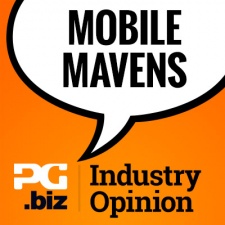Unity and ironSource’s merger has been met with deeply divergent responses from the industry and developers, and Unity’s John Riccitiello and Marc Warren have detailed some of the driving principles of the merger, and their bullishness on mobile’s stature in the games industry.
Tenjin’s Roman Garbar, LifeStreet’s Levi Matkins, Mintegral’s Jeff Sue, Metanomic’s Theo Priestley, and Frameplay’s Jonathon Troughton share their thoughts on the merger, the driving forces behind it, and what to expect when two influential but tumbling entities combine forces.
I can’t say this wasn’t a surprise, but it is a logical step for both companies. It’s all driven by the privacy-centric shift initiated by Apple. Without it, there would be no AppLovin acquisition of Adjust, or many other deals, including this one. Consolidation makes a lot of sense in a rapidly changing industry, especially when the world economy is signaling a downturn.
I feel both companies needed this merger to compete with ad juggernauts like Google, Meta, TikTok, and AppLovin. And they can definitely do it if they play their cards right – our data shows that Unity and ironSource were the third and fourth biggest ad networks in terms of iOS ad spend by hypercasual games in Q1 2022.
Combined, they are a formidable force. References to a ‘platform for Creator Economy’ also point to plans for an all-in-one platform where users can create, monetise and advertise games and other content.
While the merger seems positive for the adtech industry and will likely ease investor concerns given the financial climate, it may also be of concern to game developers and signal a further divide between game engine platforms and advertising offerings.
As for future M&A activity, we’ll likely start to see similar moves from other players. For example, Vungle and Liftoff will now need a mediation layer to stay competitive, and Unity will likely acquire an MMP, just as AppLovin has done with Adjust.”
At the start of the year, we saw the biggest tech deal ever with Microsoft’s acquisition of Activision. The games industry was truly having its moment, experiencing both unprecedented growth and unprecedented consolidation. A little more than six months later we are seeing a very different scenario: the ‘merger’ between two companies whose valuations have plummeted.
Unity and ironSource is a merger that may be motivated by a ‘safety in numbers’ mentality. When valuations & the metaverse buzz were strong, Unity appeared to be focusing primarily on the future potential of its game engine.
But with a downturn in the more speculative businesses in the public markets, this is perhaps a recognition by Unity that their monetization suite was less competitive, and they made the move to bolster their more immediate business. In the end, this follows the trend of consolidation, and Unity and ironSource decided that they’d be better positioned to succeed together.
The purchase already seems to have boosted ironSource’s valuation, which is expected given the 74 per cent premium Unity paid. It will be interesting to see in the coming quarters if it also pays off for Unity.
The market doesn’t like this deal, and nor do game developers. There’s a lot of back channel developer chatter about the possibility that installing a game will install something else as well in the future. If you’re building a game using Unity, you might want to rethink how that is perceived by your own developers and intended audience now.
Unity may well have killed its goodwill with the developer community, and developers may well just run into the open arms of Epic Games and its Unreal Engine to build their games, metaverse, and Web3 projects.
This merger underscores how significant gaming is as an advertising channel. We’re only just beginning to scratch the surface when it comes to pushing creative boundaries around in-game advertising. At Frameplay, we see mergers of this nature as vehicles that help drive industry innovation.
Even beyond just these two companies’ strategic directions, this is also an opportunity for other companies like Frameplay – whose technology focuses on immersive advertising – that are working toward the core belief of creating better ads and monetization for gamers, advertisers, and developers.










